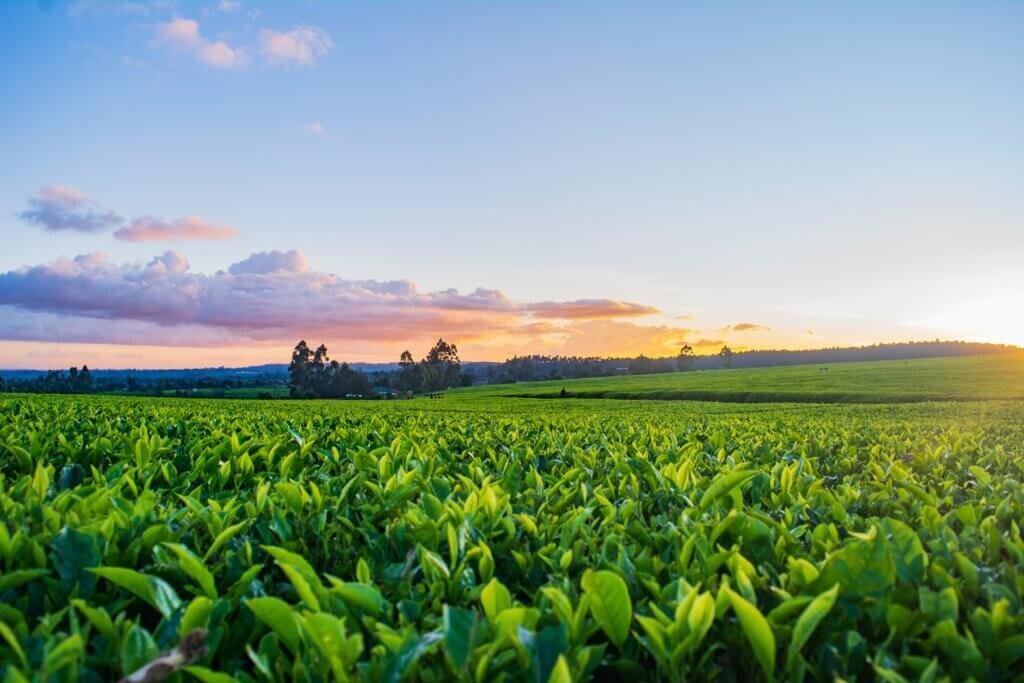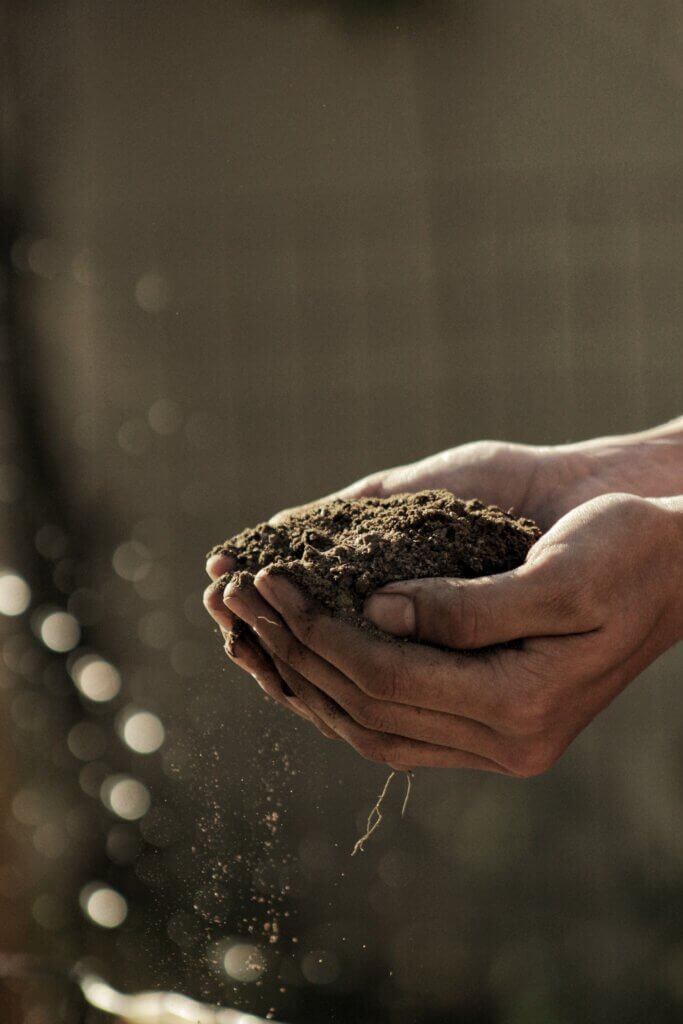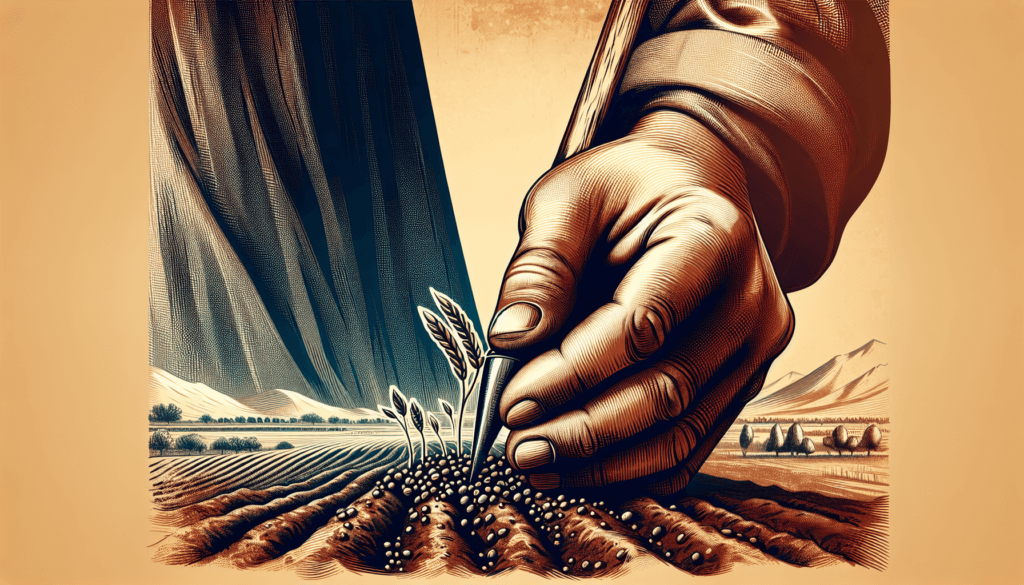Imagine a world without farmers – no fresh produce, no hearty meals, and no thriving communities. It’s hard to fathom, isn’t it? Farmers are the unsung heroes who toil tirelessly to feed us and ensure our well-being. They provide us with the essential sustenance that nourishes our bodies and fuels our daily lives. Beyond just growing food, farmers play a pivotal role in fostering economic growth, preserving cultural heritage, and promoting sustainability. They are the backbone of our communities, and it’s high time we give them the recognition they truly deserve.

Providing Food Security
Ensuring a Stable Food Supply
As a farmer, you play a vital role in ensuring a stable food supply for your community. By cultivating crops and raising livestock, you contribute to the availability of fresh and nutritious food that sustains the community’s health and well-being. Your dedication to producing food year-round helps to minimize fluctuations in supply, ensuring that people have access to the nourishment they need.
Reducing Dependence on Imports
By growing a variety of crops and producing local food, you help reduce our community’s dependence on imported goods. This not only strengthens our food security but also supports local businesses and farmers. By promoting self-sufficiency, you contribute to the resilience of our community and reduce our vulnerability to supply chain disruptions or price fluctuations in global markets.
Alleviating Hunger and Malnutrition
One of the most significant impacts you have on the community is your role in alleviating hunger and malnutrition. Through your efforts, you provide access to affordable and nutritious food options for those who may otherwise struggle to obtain them. Your commitment to sustainable farming practices ensures that everyone, regardless of their socioeconomic status, can have access to healthy food choices, ultimately improving their overall well-being.
Supporting Economic Growth
Job Creation and Rural Development
As a farmer, you not only provide us with food but also contribute to local economic growth. Through your farming activities, you create job opportunities, particularly in rural areas. By employing farm workers, you help stimulate the local economy, reducing unemployment rates, and improving living standards. Your commitment to rural development helps to build strong and thriving communities.
Contribution to GDP
Your role as a farmer has a significant impact on the nation’s Gross Domestic Product (GDP). The agricultural sector is a crucial pillar of our economy, and your contribution to it cannot be overstated. By cultivating crops, raising livestock, and engaging in agricultural trade, you generate revenue and contribute to the growth and stability of the overall economy.
Boosting Local Businesses and Markets
As a farmer, you not only supply food directly to consumers but also support local businesses and markets. When you sell your products locally, you create a ripple effect throughout the community. Local restaurants, grocery stores, and farmers’ markets rely on your produce and products, boosting their sales and fostering economic growth. By supporting local businesses, you contribute to a vibrant and prosperous community.

Preserving Cultural Heritage and Tradition
Sustaining Traditional Farming Practices
By adopting and preserving traditional farming practices, you play a crucial role in sustaining our cultural heritage. Many farming methods have been passed down through generations, representing our community’s unique traditions and identity. Your commitment to these practices ensures that they continue to be passed on to future generations, preserving our cultural heritage for years to come.
Maintaining Local Food Culture
Food is intricately linked to our culture and identity. As a farmer, you play a significant role in maintaining our local food culture. Through the cultivation of traditional crops and the production of artisanal food products, you contribute to the rich culinary traditions that define our community. By valuing and promoting our local food culture, you help to strengthen our sense of belonging and pride.
Fostering Community Identity
Farming is not just a profession; it is a way of life that shapes the fabric of our community. Your contribution as a farmer fosters a sense of community identity, bringing people together through shared values and experiences. By participating in local agricultural events, such as farmers’ markets, fairs, and festivals, you actively contribute to the social cohesion and cultural vibrancy of our community.
Ensuring Environmental Sustainability
Conservation of Biodiversity
As a farmer, you have a unique opportunity and responsibility to conserve biodiversity. By implementing sustainable farming practices, such as crop rotation and integrated pest management, you contribute to preserving the balance of ecosystems. Your efforts to protect and enhance biodiversity ensure the continued existence of various plant and animal species, ultimately safeguarding the health and resilience of our environment.
Sustainable Land and Water Management
The way you manage and care for the land and water resources is critical to environmental sustainability. By adopting sustainable land management practices, such as soil conservation and water-efficient irrigation techniques, you minimize the impact of agriculture on the environment. Your commitment to sustainably managing these resources helps to mitigate soil erosion, preserve water quality, and protect habitats.
Mitigating Climate Change Impact
Climate change poses significant challenges to our environment and agricultural systems. However, as a farmer, you can contribute to mitigating its impact. By implementing climate-smart farming practices, such as agroforestry and precision agriculture, you reduce greenhouse gas emissions and enhance carbon sequestration. Your efforts help slow down climate change, making agriculture more resilient and sustainable for future generations.

Providing Educational Opportunities
Promoting Agricultural Learning
As a farmer, you have a unique opportunity to educate others about agriculture and its importance. By hosting farm visits, workshops, or agri-tourism activities, you can share your knowledge and experiences with the community. These educational opportunities not only inspire and engage individuals but also create a greater understanding and appreciation for the hard work and dedication it takes to feed our communities.
Supporting Research and Innovation
Farmers are at the forefront of agricultural research and innovation. By collaborating with agricultural researchers and institutions, you contribute to the development and implementation of new techniques, technologies, and sustainable practices. Your participation in research trials, field demonstrations, and knowledge sharing fosters innovation, ultimately driving continuous improvement in agricultural productivity and environmental stewardship.
Teaching Sustainable Practices
Your role as a farmer goes beyond simply producing food. By practicing and promoting sustainable farming techniques, you become an advocate for responsible land management and resource conservation. By teaching others about the importance of sustainable practices, you empower them to make informed choices, thereby contributing to a more sustainable future. Your dedication to educating others about sustainable agriculture sets an example for future generations to follow.
Supporting Social Welfare
Generosity and Philanthropy
Farmers have a long history of generosity and philanthropy within their communities. By donating surplus produce, supporting local food banks, or organizing charity events, you make a significant impact on social welfare. Your acts of goodwill ensure that those in need have access to fresh and nutritious food, uplifting the overall well-being of the community.
Participating in Community Events
Your participation in community events plays an essential role in fostering social connections and a sense of belonging. By engaging in local festivals, farmers’ markets, or agricultural shows, you contribute to the vibrancy and cohesion of our community. These events provide an opportunity for residents to come together, share experiences, and celebrate the integral role that farming plays in our collective identity.
Strengthening Social Bonds
As a farmer, you are a linchpin of the community, helping to strengthen social bonds. From organizing farm tours for schools to mentoring aspiring farmers, you actively engage and inspire the next generation. Through your involvement, you promote social cohesion, build networks, and encourage collaboration, laying the foundation for a resilient and harmonious community.

Ensuring National Food Independence
Reducing Reliance on Imports
By producing a diverse range of high-quality agricultural products, you help reduce our nation’s reliance on food imports. This not only improves our food security but also strengthens our economy. By favoring local produce, communities can support their farmers and ensure a steady supply of fresh, nutritious food, reducing dependence on external sources.
Enhancing National Security
Agriculture is a critical component of national security. By maintaining a robust agricultural sector, we can safeguard ourselves against potential threats to the food supply. By supporting and investing in local farmers, we strengthen our nation’s resilience and ability to withstand emergencies, ensuring that we can provide for our citizens even in challenging times.
Avoiding Foreign Dependencies
Striving for food independence helps us avoid dependency on foreign countries for our food needs. By prioritizing local agricultural production, we reduce our vulnerability to global market fluctuations, trade disputes, or political conflicts. By relying on our own farmers, we ensure a reliable and secure food supply chain, safeguarding our community’s well-being.
Innovating Agriculture and Technology
Improving Farming Techniques
Embracing innovation and adopting improved farming techniques are essential for the continuous improvement of agriculture. By incorporating sustainable practices, precision agriculture, and modern irrigation methods, you enhance the efficiency and productivity of your farm. Your willingness to embrace new technologies and techniques helps drive the agricultural sector forward, making it more resilient, sustainable, and productive.
Adoption of Modern Technology
Technology has revolutionized agriculture, providing tools and systems that streamline farming operations and enhance productivity. By adopting modern technologies, such as farm management software, intelligent machinery, and remote sensing devices, you optimize resource allocation, improve crop yields, and reduce waste. Your utilization of these advancements sets an example for others in the industry, encouraging the broader adoption of technology for sustainable agricultural practices.
Enhancing Efficiency and Productivity
Your commitment to innovation and embracing modern technology ultimately enhances the efficiency and productivity of the agricultural sector. By continuously seeking ways to optimize processes, reduce waste, and maximize yields, you contribute to the overall economic performance of the industry. By doing so, you ensure a prosperous future for farming and secure the long-term sustainability of our food production systems.

Maintaining Rural Landscape and Open Spaces
Preserving Natural Beauty
Farming has a profound impact on the landscape, and as a farmer, you can make a significant contribution to preserving the natural beauty of our rural areas. By managing your land sustainably, planting trees, and preserving natural habitats, you help maintain the scenic beauty of the countryside. Your efforts ensure that future generations can experience and enjoy the serene landscapes that define our community.
Preventing Urban Sprawl
As urban areas expand, the threat of encroachment on agricultural land and open spaces becomes more significant. By maintaining and cultivating farmland, you play a crucial role in preventing urban sprawl and conserving vital agricultural resources. Your commitment to preserving rural landscapes helps maintain a healthy balance between urban development and the essential agricultural land needed to sustain our communities.
Conserving Agricultural Land
Protecting agricultural land is essential to ensure a sustainable future for our food production systems. By practicing responsible land management techniques and supporting land conservation efforts, you contribute to the long-term preservation of agricultural land. Your commitment to safeguarding these resources helps ensure that future generations have the opportunity to engage in sustainable farming practices and enjoy the benefits of a thriving agricultural sector.
Contributing to a Sustainable Future
Promoting Organic and Local Food
The demand for organic and locally sourced food has been increasing as people become more conscious of their health and the environmental impact of food production. As a farmer, your dedication to organic farming practices and the production of local food plays a crucial role in meeting this demand. By providing access to high-quality, sustainable, and nutritious food choices, you contribute to a more sustainable future for our community.
Implementing Renewable Energy Sources
In recent years, renewable energy sources have gained considerable prominence in the quest for sustainability. As a farmer, you have the opportunity to make a significant impact by implementing renewable energy technologies on your farm. By harnessing solar power, wind energy, or bioenergy, you can reduce your reliance on non-renewable resources and contribute to the transition towards a more sustainable energy future.
Advancing Sustainable Practices
Sustainable farming practices are key to ensuring a sustainable future for our community and planet. By adopting practices such as organic farming, water conservation, and agroecology, you actively contribute to environmental preservation and long-term sustainability. Your commitment to advancing sustainable practices sets an example for the entire agricultural community, driving positive change and paving the way for a more resilient and environmentally conscious future.
As you can see, farmers play an integral role in the community, impacting various aspects of our lives. From ensuring food security to preserving our cultural heritage, supporting economic growth, and protecting the environment, your contribution as a farmer is invaluable. The role you play extends far beyond the fields and into every aspect of our community, making a lasting impact on the well-being and sustainability of our society. Your dedication, hard work, and commitment to the land and its people are truly appreciated. Thank you for being an essential pillar of our community and for the tremendous contributions you make every day.


